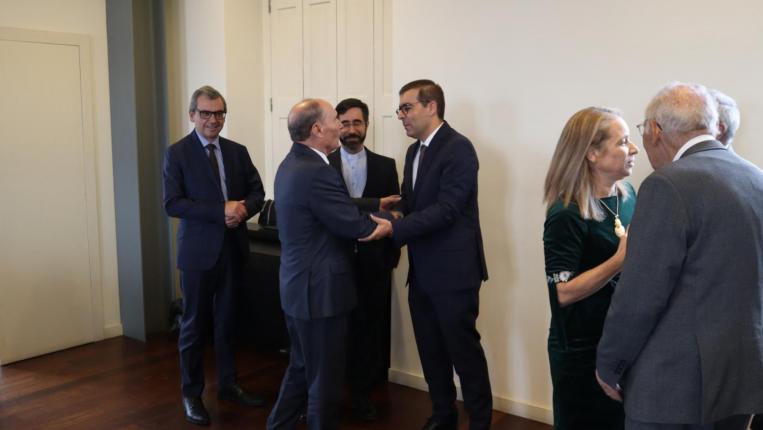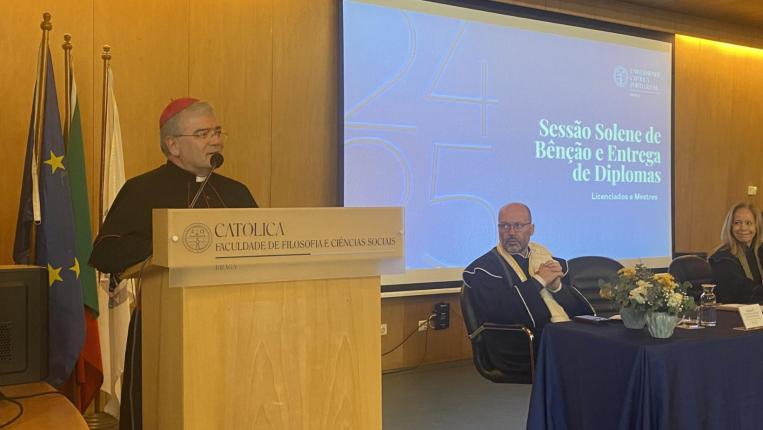
The tribute to Professor José da Silva Lima at the Camões campus of UCP Braga began with a greeting from the Vice-Chancellor, Paulo Dias, who emphasised the honouree's ‘fundamental’ role in the creation, growth and consolidation of the UCP's Braga Regional Centre.
‘He was a man of his time with a universal vision, and this is clearly evident in his academic studies in Theology, History of Religions, Anthropology and Sociology, not only in Alto Minho, his homeland, but also beyond Alto Minho,’ said Paulo Dias.
He also recalled his remarkable experience in some of the best academic institutions in France, England, the USA and elsewhere, both in terms of training and teaching.
This was followed by a tribute lecture given by João Duque, professor at the Faculty of Theology, who focused his talk on the work of Professor José da Silva Lima at UCP, particularly the establishment of the Braga Regional Centre.
The professor highlighted several facets, from academic organisation, with the development of several courses at the Faculty of Social Sciences, to the construction and management of material structures (buildings), as well as links to various institutions such as the Archdiocese of Braga, the Society of Jesus and others.
In this coordination work, he particularly recalled the decisive role of the professor in the transition from the old PSP building to UCP.
‘Professor José da Costa Lima's life is deeply linked to UCP. He was one of the pillars of the teaching staff, especially in Braga, and, in practice, he was responsible for the entire restoration of the Camões campus. He is a very diplomatic person, who knew how to manage everything with great competence and wisdom,’ he emphasised.
Professor João Duque also highlighted the academic side of his colleague José da Silva Lima, revealing that it was he who was responsible for his dedication to theology.
‘He is an eminent theologian on the national and international scene,’ he said, recalling that he was one of the first in Portugal to ‘produce theology with productivity,’ linking it to other areas of knowledge such as sociology and cultural anthropology.





